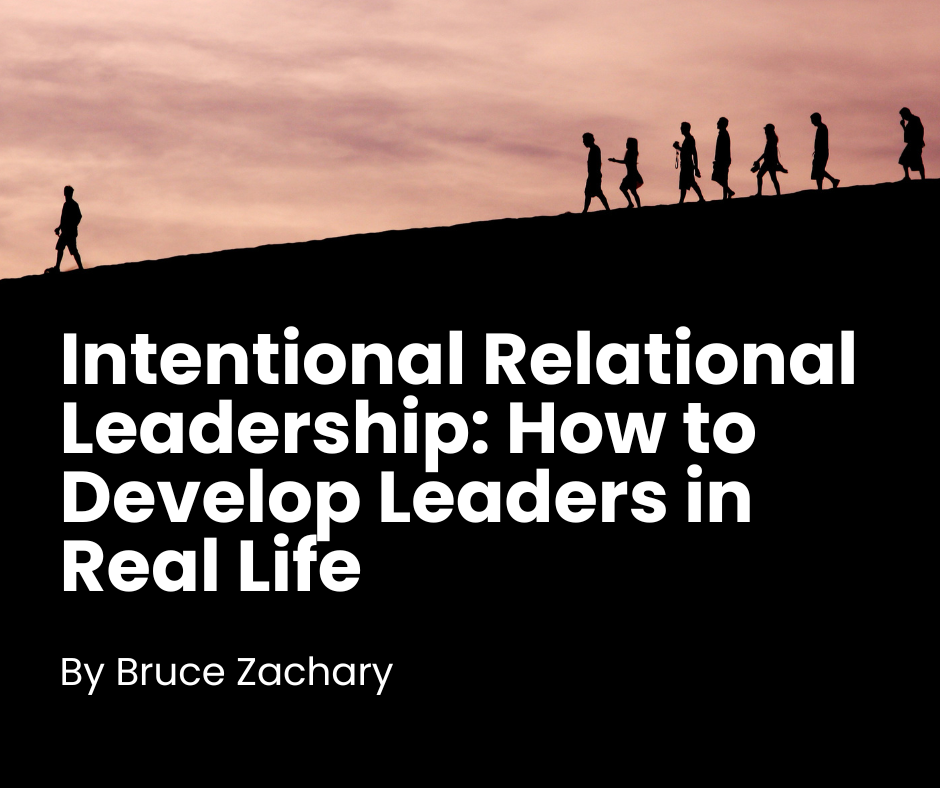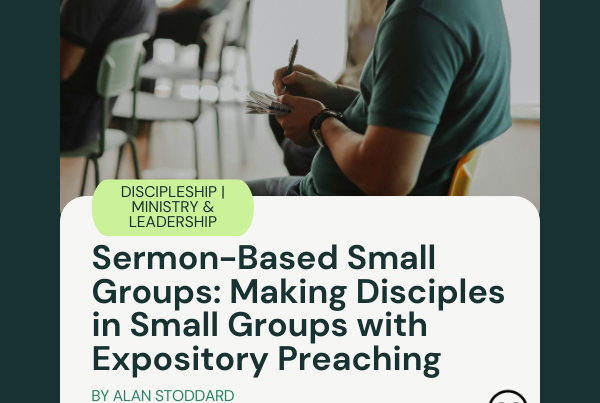
Editor’s Note: This is the first article of a series on how to develop disciples who will, in turn, make disciples of others. In addition, Bruce Zachary will provide an overview of this process during the workshop on Intentional Relational Leadership at the CGN International Conference June 23-26 in Costa Mesa, California.
“And the things that you have heard from me among many witnesses, commit these to faithful people who will be able to teach others also” (2Tim. 2:2).
The Greek philosopher Archimedes is attributed with the principle, “Give me a lever long enough and a fulcrum on which to place it, and I shall move the world.” The underutilized lever, in this instance, is the influence of accumulated knowledge, wisdom, and experience of followers of Jesus; and the fulcrum is the Church. The transmission of knowledge, wisdom and experience from mature followers of Jesus to less mature followers is the essence of discipleship. Discipleship creates leverage to multiply Jesus’ followers, multiply leaders, and move the world.
The gospel is the hope of the world, and the world needs more effective gospel-centered disciples who engage in making disciples of others. The multiplying influence is not merely exponential, but creates leverage by tapping into “expotential.”
It is reasonable to believe that the essence of our purpose is to fulfill the Great Commandments and Great Commission. If you distill all that Christ instructed and intends for His people to be and do, it would likely sound like this: “Love God supremely, love neighbors as you love yourself, and make disciples (of Me) who do likewise.” This is a life-changing, world-changing, eternity-changing, desired destination. Despite a relatively simple desired outcome, the target appears to be elusive. Simply stated, the problem is that most followers of Jesus, who presumably genuinely love God and neighbors, have neglected to make other disciples who do likewise.
Let me pause your thinking for a moment … You likely read the last sentence in less than ten seconds and had no visceral response.
I recognize that only the Holy Spirit can effect transformed attitudes and actions. Yet, please bear with me as I try to illustrate. I was at a conference a dozen years ago when the speaker referenced the Great Commandments (Matt. 22:37-40), and it was a coming to Jesus moment. I had been a pastor for more than twenty years and was familiar with the commandments of loving God supremely and loving neighbors as self (Deut. 6:5, Lev. 19:8). Still, at that moment, the Holy Spirit was impressing upon me that I did not even know my neighbors (people I live in proximity with), let alone love them, and certainly did not love them as I love myself. I could try to deny that reality, justify myself by my love for others, deflect the conviction, or I could confess and repent (which I did, and it has been life-transforming in the best of ways).
Thus, the failure to make disciples should not be casually neglected like foregoing flossing after meals, proper diet, or exercise. At some point, you, me, and the Church need a coming to Jesus moment since we are rebelling against a fairly significant commandment. We can try to deny, deflect, or justify. We can assert that no one discipled us, or it seems too daunting, or I can’t disciple someone. Or you can confess and repent and experience life transformation in the best of ways.
So, before contemplating how we might go about making disciples more effectively let us consider some of the benefitsyou will experience from making disciples (i.e., the value-added proposition). You will grow as a follower of Jesus. You will be more confident in your identity as Jesus’ disciple. You will experience satisfaction as God’s kingdom is advanced. You will accelerate your appreciation and appropriation of spiritual disciplines. You will develop meaningful relationships with others. You will be affirmed, equipped, and empowered as a disciple and disciple-maker. You will experience Jesus working in you and through you anew.
The need for a better model: Intentional Relational Leadership
Jesus’ method of making disciples is intentional and relational. The intentionality is reflected in the reality that He is forging Christlike character, infusing kingdom values, and transforming thinking about God, people, ritual, authority, etc. And He is preparing them for the tasks of fulfilling the Great Commandments and Great Commission (apprenticeship). The relational aspect is demonstrated through the revelation of seemingly countless hours spent together during three years—and Jesus’ declaration that His disciples are His friends (Jn. 15:12-17).
In contrast, it seems that much of our mentoring efforts focus on either relationship while neglecting intentionality, or training for tasks (intentionality) while neglecting the relationship. Furthermore, the typical paradigm does not encourage the mentor to be discipled by another. Nor does the process generally ensure the disciple can replicate the process by discipling another.
Until relatively recently, I did not know a better way. For example, I would meet with less experienced leaders either in person or via Zoom once a month for about an hour. The meetings were primarily relational. We would chat about personal and ministry matters they were challenged with at that time, and I would offer my best counsel. Although I suspect that all would say that our meetings were helpful, they lacked intentionality in regard to the development of these less experienced leaders. This ad hoc approach imparts insight into particular situations but tends to neglect strategic, intentional development toward targeted goals.
In a series of articles, I intend to describe a process of intentional relational leadership that will explain how to develop disciples who will, in turn, make disciples of others. The goals of the process are:
1. Experienced disciples will experience greater contentment, fulfillment, and kingdom influence.
2. Experienced disciples will help equip, enable, encourage, empower, and evaluate
less experienced disciples.
3. The less experienced leaders will be developed and committed to developing other disciples.
4. Relationships between the participants are forged, strengthened, and continue beyond the duration of training.
Upcoming Workshop on Intentional Relational Leadership
I have the privilege of leading a workshop providing an overview of this process at the Calvary Global Network (CGN) International Conference at the end of June. I hope to discuss these matters with you in person at that gathering.







